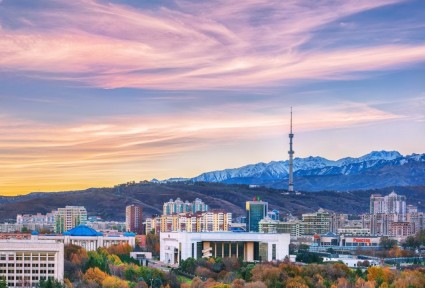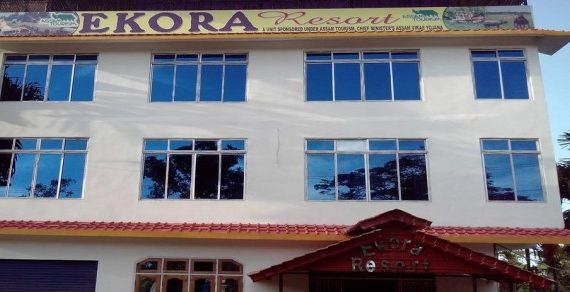Booking for : Beautiful Almaty Fly-N-Stay
Beautiful Almaty Fly-N-Stay
Duration : 5 Days, 4 Nights
Tour Details
Kazakhstan, officially the Republic of Kazakhstan is the world’s largest landlocked country, and the ninth largest in the world, with an area of 2,724,900 square kilometres (1,052,100 sq mi). It is a transcontinental country largely located in Asia; most western parts are in Europe. Kazakhstan is the dominant nation of Central Asia economically, generating 60% of the region’s GDP, primarily through its oil and gas industry. It also has vast mineral resources.
Kazakhstan is officially a democratic, secular, unitary, constitutional republic with a diverse cultural heritage. Kazakhstan shares borders with Russia, China, Kyrgyzstan, Uzbekistan, and Turkmenistan, and also adjoins a large part of the Caspian Sea. The terrain of Kazakhstan includes flatlands, steppe, taiga, rock canyons, hills, deltas, snow-capped mountains, and deserts. Kazakhstan has an estimated 18.3 million people as of 2018. Given its large land area, its population density is among the lowest, at less than 6 people per square kilometre (15 people per sq mi). The capital is Nur-Sultan (until 2019 Astana), where it was moved in 1997 from Almaty, the country’s largest city.
Why you choose this package!
- Andrew Gee Artist & Designer
- Adelaide Studio
- Aride Island Nature Reserve
- Bel Air Cemetery
- Bicentennial Monument

Day 1, Arrival at Almaty

Day 2, Almaty City Tour
Meal Included
BreakfastLunchDinner

Day 3,Almaty Medows & Chimbulak
Meal Included
BreakfastLunchDinner

Day 4,Shopping tour & Kok Tobe Tour
Meal Included
BreakfastLunchDinner
Day 5, Departure from Almaty
Meal Included
Breakfast
Inclusions
- Return Economy Class Air Tickets Ex-Delhi-Almaty-Delhi on Air Astana
- 04 Night Accommodation in mentioned HOTEL on Twin / Double Sharing Basis
- Daily buffet breakfast in the hotel
- Meals full board basis
- Return Airport transfers
- Letter of Invitation from Kazakhstan (LOI)
- Visa support and processing charges at Embassy of Kazakhstan
- Welcome Almaty Guided city tour
- Exciting Guided Mountain tour to Medeo & Chimbulak
- Tour to Kok Tobe (By Coach
- English Speaking Tour Guide
- 02 Water Bottles Per Pax Per Day
- 03 Buffet Breakfast + 02 Normal Lunches + 01 Packed Lunch + 03 Normal Dinners + 01 Gala Dinner
Exclusions
- Any Meals other than specified in inclusions.
- Personal expenses such as tips, porterage, telephone calls, rooms service, etc.
- Surcharge will be applicable on particular events, festival, exhibition & fairs.
- Any security deposit asked by the hotel during check in.
- Travel Insurance.
- Visa Charges.
- GST extra.






